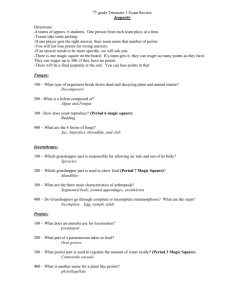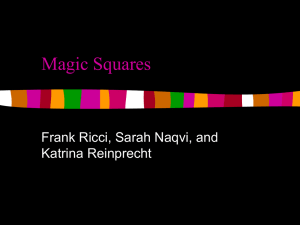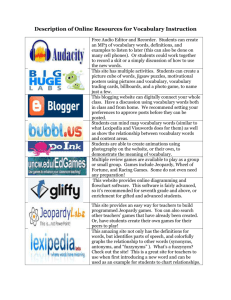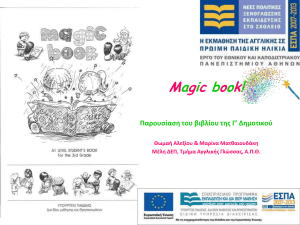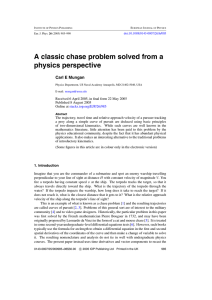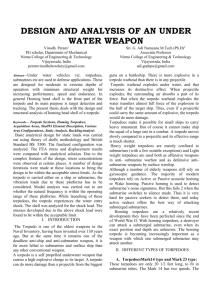Classroom Games
advertisement
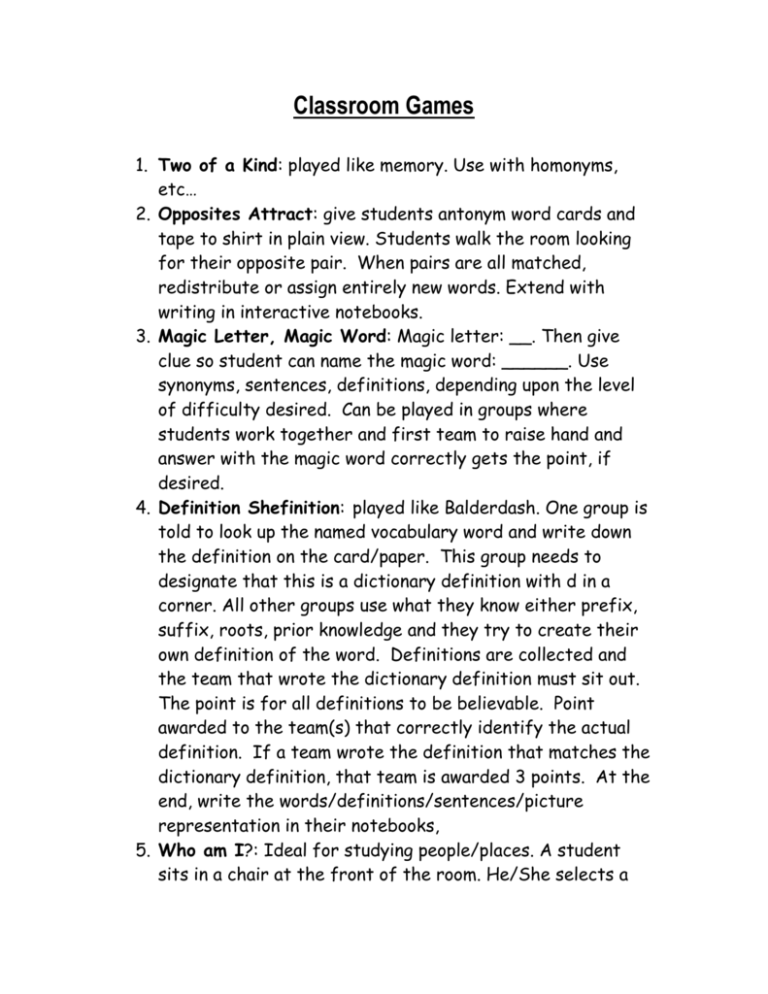
Classroom Games 1. Two of a Kind: played like memory. Use with homonyms, etc… 2. Opposites Attract: give students antonym word cards and tape to shirt in plain view. Students walk the room looking for their opposite pair. When pairs are all matched, redistribute or assign entirely new words. Extend with writing in interactive notebooks. 3. Magic Letter, Magic Word: Magic letter: __. Then give clue so student can name the magic word: ______. Use synonyms, sentences, definitions, depending upon the level of difficulty desired. Can be played in groups where students work together and first team to raise hand and answer with the magic word correctly gets the point, if desired. 4. Definition Shefinition: played like Balderdash. One group is told to look up the named vocabulary word and write down the definition on the card/paper. This group needs to designate that this is a dictionary definition with d in a corner. All other groups use what they know either prefix, suffix, roots, prior knowledge and they try to create their own definition of the word. Definitions are collected and the team that wrote the dictionary definition must sit out. The point is for all definitions to be believable. Point awarded to the team(s) that correctly identify the actual definition. If a team wrote the definition that matches the dictionary definition, that team is awarded 3 points. At the end, write the words/definitions/sentences/picture representation in their notebooks, 5. Who am I?: Ideal for studying people/places. A student sits in a chair at the front of the room. He/She selects a 6. 7. 8. 9. card placed face-down. The card is then placed on a hat or projected on the board behind the student. The student is then to ask the class yes or no questions to try and figure out his/her secret identity. Where am I?: All students must have a map and starting place must be identified. Then teacher gives directions using directions/coordinates to get to the final destination. Jeopardy: Use Jeopardy template, but adjust to the learning outcomes you desire for the unit of study. Students use whiteboards so all participate. Torpedo: after reading a story or unit of study, allow students a set amount of time to create a list of contentrich vocabulary words that are relevant to the story or unit. You can allow them to use their book, or not depending on how familiar they are with the topic. After the set time, I allow students to then work with neighbor to add to the list. Then students are placed in small groups. I call on one group at a time and they give their best word. If any other group has that word (or variant of the word if you choose), they call out the word “torpedo!” and no points are awarded. If no groups call out torpedo, that team earns a point. If a group isn’t listening and calls out a word that has already been used, they lose their turn. Classroom Feud: played like Family Feud. Good to be used as a review in any of the content areas. Questions need to be made up ahead of time, at least as many questions as there are students in the class. Use multiple choice, fill in the blank or short answer formats for questions. Give a limited time period for answering the question. Split class into two teams and appoint an official team leader. New team leader with each new opportunity to answers a question. Flip a coin to determine which team goes first. Display the question and set timer. Leader confers with team. If the answer is correct at the end of the time, they get the point, if not, the other team can steal the point. When introducing vocabulary, remember the 6 steps: 1. Provide description, explanation, or example of new term 2. Ask students to restate explanation, description, or example in their own words. 3. Have students construct a picture, symbol, or graphic representation of the term. 4. Engage students in activities that help them add to their knowledge of terms in their notebooks. 5. Periodically ask students to discuss terms with one another. 6. Involve students periodically in games that allow them to play with the terms. Marzano, 2010
